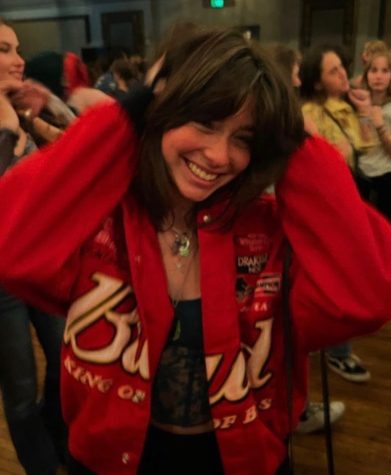 Timotheé Chalamet, Tana Mongeau, the Kardashian family, Beyoncé, and David Dobrik are all examples of famous influencers who actively use social media. On their various social media accounts, these influencers have all built platforms with millions of followers. While some celebrities advocate for political and social movements others stay silent and continue to post as though nothing is happening. These influencers have a great deal of impact over others because many of their followers look up to them. It is the influencer’s responsibility to voice their opinions, educate others and amplify voices that need to be heard. By remaining mute on important matters, social media celebrities are enabling these injustices.
Timotheé Chalamet, Tana Mongeau, the Kardashian family, Beyoncé, and David Dobrik are all examples of famous influencers who actively use social media. On their various social media accounts, these influencers have all built platforms with millions of followers. While some celebrities advocate for political and social movements others stay silent and continue to post as though nothing is happening. These influencers have a great deal of impact over others because many of their followers look up to them. It is the influencer’s responsibility to voice their opinions, educate others and amplify voices that need to be heard. By remaining mute on important matters, social media celebrities are enabling these injustices.
Recently, many YouTubers, actors and other public figures have been called out for not speaking up. David Dobrik, a 24 year old video creator with over 18.5 million subscribers on YouTube, is under heat for remaining quiet about sexual assault allegations against a handful of his friends as well as the fact we was joking about these instances in his videos. Dobrik has a wide audience and, therefore, he should not be producing videos that humorize, glorify, or allow behavior that indicates sexual assault is acceptable. Only when Dobrik was publicly outed did he finally speak on the matter.
Similar to Dobrik, Tana Mongeau is another popular YouTube influencer with over 5.4 million subscribers. During the peak of the Black Lives Matter protests this summer, Mongeau was promoting her then new Only Fans account– another form of social media where users can pay money for other people’s explicit photos and videos. Many of Mongeau’s own fans criticized it, wishing that she would comment on the protests. Eventually, a close friend of Mongeau called her out publicly on Twitter, which prompted Mongeau to rebrand herself. Mongeau’s new platform promoted donations, petitions, and other helpful resources, as well as provide a voice for the Black community, which was able to reach a broad spectrum of people
It is upsetting that these influencers needed to face backlash in order to begin talking about injustices in the world. With a platform that big, simply taking the time to educate themselves and post information, could impact so many others. Influencers know that their job is not necessarily to be an expert on activism, but they should still use their platforms to uplift the stories of people who experience these discriminations and inform the public on what they can do to help these communities.
Influencers also have a political influence whether they realize it or not. In October of 2019, Taylor Swift finally broke her political silence by making a post explaining how the candidates for the U.S Senate should care for basic human rights.
“I always have and always will cast my vote based on which candidate will protect and fight for the human rights I believe we all deserve in this country,” Swift’s Instagram post said, “I cannot vote for someone who will not be willing to fight for dignity for ALL Americans, no matter their skin color, gender or who they love.”
Only twenty four hours after that post, Vote.org saw a registration increase of 65,000 people.
Addie Stoterau, a sophomore at Redwood, is a social media activist whose Instagram account has many resources and information educating her followers on social injustices.
“Especially in the times that we are in, it’s super important to get information out there and I feel like not enough people are doing that. If you have a super big platform you should utilize your voice,” Stoterau said. “At least doing the bare minimum to address these issues for people would be enough. Then [influencers] will start to realize more about what these issues are and then maybe [their followers will] research more and then can go inform others…it’s like a snowball effect.”
It is expected that influencers and celebrities are not going to be experts on topics such as systemic racism, the damages of sexual assault, the experience of anti-Asian hate crimes and many more, but they can find ways to amplify the voices of those that do have these experiences. Having a big platform allows for such stories, that may otherwise be drowned out, to reach a much wider spectrum of audiences. Influencers should ultimately recognize the potential of their large platforms and set the precedent on how to help communities that are discriminated against.





